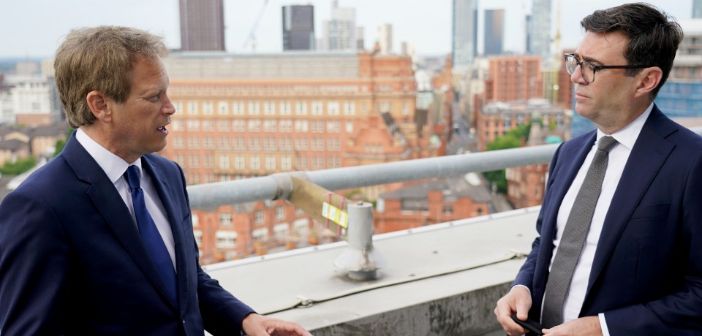UK transport secretary Grant Shapps has announced the establishment of a Northern Transport Acceleration Council dedicated to fast-tracking vital infrastructure projects and better connecting communities across towns and cities in the north of England.
According to the Department for Transport (DfT), the council launched today will ensure northern leaders have a direct line to ministers and has been formed with a desire to cut bureaucracy and red tape so passengers can get a modern, reliable transport network as quickly as possible.
The Northern Transport Acceleration Council will hold its first meeting in September and will be made up of mayors and council leaders with the transport secretary as chair. It will engage with DfT staff based in northern cities and work with the Northern Powerhouse Growth Body to improve outcomes for people and places in the north.
Its establishment is the latest in a range of initiatives to level-up infrastructure across the north including £20m to deliver infrastructure renewals on the Tyne and Wear Metro, and £15m to upgrade Horden, Darlington and Middlesbrough stations.
Shapps said: “People across the north rightly expect action, progress and ambition and this government is determined to accelerate improvements as we invest billions to level up the region’s infrastructure.
“We are determined to build back better at pace, and this new council will allow us to engage collectively and directly with elected northern leaders to build the vital projects the region is crying out for.”
Some £589m to kickstart work to upgrade and electrify the Transpennine main line between Leeds, Huddersfield and Manchester has also been confirmed by Shapps.
As part of this investment, the most congested section of the route will be doubled from two to four tracks, allowing fast trains to overtake slower ones, improving journey times and reliability for passengers across the north.
While most of the line will be electrified, the government said that full electrification, digital signalling, more multi-tracking and improved freight capacity are now under consideration as part of an ‘Integrated Rail Plan’ due to report in December.
These improvements will allow all-electric services between Liverpool, Manchester, Leeds, York and Newcastle, bring longer and more frequent trains, and create more local capacity along the line.
Improvements to allow more freight on the route, replacing thousands of diesel lorry journeys with electric freight trains, will also be considered in the plan.
Work is also underway to tackle the bottlenecks at either end of the route without which the upgrade’s potential cannot be fulfilled. Leeds station is being re-signalled and a new platform is being built. In central Manchester, development funding was awarded last month to tackle rail congestion.
Mayor of Greater Manchester, Andy Burnham, welcomed what he described as a “gear change” from the government in the delivery of transport improvements in the north of England.
“The additional funding for the Transpennine route upgrade is a welcome sign of intent from the government,” said Burnham. “The north has long argued for the existing scheme to be upgraded to bring the full range of passenger and freight benefits and we are glad that the government has listened to this.
“But it is important to be clear that upgrading the existing railway between Manchester and Leeds does not diminish the need for a new line in Northern Powerhouse Rail nor does it solve the capacity issues in central Manchester, which require a separate solution.
“My top priority is to build a London-style, integrated public transport system in Greater Manchester and I look forward to working with the [transport secretary] on making this vision a reality.”





